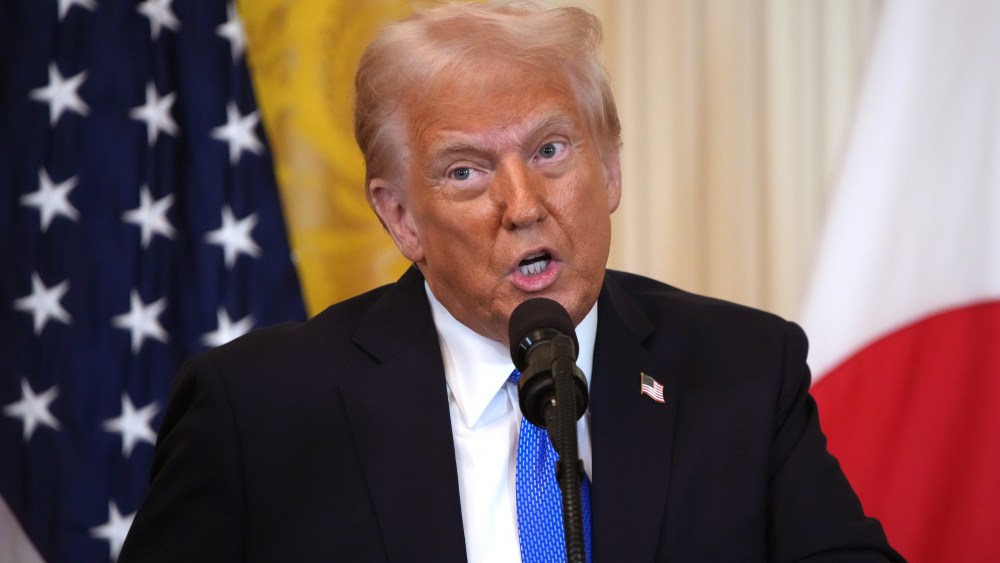President Trump announced a plan on Sunday night to slap a 100% tariff on foreign-produced films — prompting a slew of questions in Hollywood.
Starting with: Huh?
Runaway production has been debated for decades, and in recent months there’s been a push for federal policy to address it. But nobody — nobody — in Hollywood is asking for a tariff on foreign-made films.
Here are seven major questions left unanswered on Trump’s proposal:
Will he do that?
Trump only said he was “authorizing” the U.S. Trade Representative and the Commerce Department to impose a 100% tariff on foreign films. He didn’t say he would do it. With previous tariff threats, Trump has sometimes made good and sometimes backed off in the face of pressure.
Can he do that?
For previous tariffs, Trump has claimed authority under the International Emergency Economic Powers Act of 1977, which gives the president broad powers to regulate foreign trade in cases of national emergency. The president has invoked the act on the theory that trade imbalances are a national emergency.
In his Truth on Sunday night, he argued that runaway production is a “National Security threat,” but did not spell out the legal authority to impose a tariff. Any such claim of authority would no doubt be litigated.
How would he do that?
Films are intellectual property, and unlike goods, they have not been subject to tariffs. Some foreign countries — notably China — impose import quotas, allowing only a limited number of U.S.-made films to show in their theaters. But the mechanics of imposing an actual tariff are a bit tricky.
For U.S. companies that film overseas — the source of the “runaway” concern — it’s not clear what transaction would be tariffed. When Disney makes a movie abroad, it doesn’t “import” the movie from itself for a particular fee to show on U.S. screens.
The moviemaking process is also highly internationalized — with some films shot partly in the U.S. and partly overseas. Editing might take place in the U.S. — or Canada, or somewhere else. Figuring out where to intervene in the value chain would be a challenge.
When would he do that?
“Mission: Impossible – The Final Reckoning” opens on May 23. It was filmed primarily in the U.K. Is it subject to a tariff? Is it grandfathered in? When does this start to bite?
What about TV?
Trump’s Truth only talks about “movies.” But in recent years, more TV production has gone overseas as well. TV production in the U.K. by non-U.K. companies (“inward investment”) surged past film production in 2020 — and has remained significantly ahead in the years since.
Who wants this?
Not Hollywood. The theater business is struggling to return to pre-pandemic levels. The last thing it needs is a new tax on movie tickets.
When Canadian film subsidies were a new phenomenon, in the late 1990s and early 2000s, some of the more militant elements of Hollywood’s labor movement called for “countervailing tariffs” against studios that filmed in Canada. The idea was that such a tariff would bring jobs back to the U.S. by offsetting the benefit of the subsidies. The Motion Picture Association adamantly opposed that idea, and supported the right of other countries to offer film incentives.
If not this, what does Hollywood want?
Subsidies.
Entertainment unions have long pushed for a federal subsidy that would compete head-to-head with the national subsidies in the U.K. and Canada, and supplement the state-level subsidies offered in New York, Georgia and California (among many others). There has been some hope that Trump would be open to a federal film incentive. But that would require Congressional action and that doesn’t seem to be the focus at the moment.
Read the full article here


